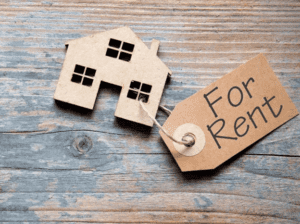When looking to purchase rental property, you essentially need to decide what market is going to present the best opportunities. The best way to narrow down the market where you want to buy is to enter a process of due diligence. Within this process, there are several filters that you can use to help you validate or dismiss different market opportunities. Among them are location, business plan, pro forma, community climate, and operation/management strategy. Let’s take a look at the first filter: location.
- Location
There’s a common school of thought that the best place to own rental property is the place you live in. In an ideal situation, I would say this is true (if your due diligence supports the idea). If you rent property in the same community you live in, it’s easier to check up on your properties and consistently make sure they’re being managed well. So, if you’re able to work and live in the same area, I would say that’s the best scenario. Sometimes, however, the housing market in your area doesn’t align well with the rental property industry, thus making it a less desirable investment location. Let’s look at a couple criteria to evaluate this:
1. Purchase Price. In different markets and at different times, homes may be at an unaffordable price for use as a rental property. Oftentimes this happens when there are low inventory levels and rapid escalation of home values, which typically leads to a down payment of 25-30% or more required to make a property cash flow at current market rents. Such a high down payment leads to a lower ROI (Return on Investment) and more cash required to make the deal.
2. Availability of Property. When selecting a market, you don’t want to be in a bidding war with 10 other people who are likely buying their first home, while you are buying it as an investment property. My point here is that there needs to be enough inventory available in a market in order for you to get a reasonable deal and create a strong rental property.
Again, if you can find good properties in the area where you live, that’s always more desirable. However, I wouldn’t choose a local property that’s a bad deal over a strong deal in a neighboring community. The only way you can distinguish between the two is by broadening your search and looking in at least three or four different markets.
Ultimately, your market’s location will need to satisfy the parameters in your business plan. Let’s look at this important filter next.
- Business Plan
A business plan is essential for multiple reasons, many of which are explored in another
article, Why a Business Plan is Important to Your Rental Business. When it comes to
narrowing down your target market, a business plan can help you make decisions by
outlining your financial goals, property criteria, and steps of action (to name a few).
When evaluating a potential market, make sure you compare it to the guidelines in your
business plan. Does the market make sense for the vision of your business? Will it help you fulfill your goals? If not, then it may not be for you. If so, you will want to move onto the next filter: pro forma.
- Pro Forma
Regardless of where a potential market is or how well it aligns with your business plan, passing it through the filter of a pro forma will be incredibly helpful as you allow the numbers to speak for themselves.
A pro forma can help you run the finances of a certain property or market, ultimately determining whether or not a property can generate enough cash flow to be a viable addition to your portfolio. As you analyze bank payments, maintenance costs, rental rates, operating expenses, etc. within your pro forma, you will soon be able to realize if a potential market can serve your needs. To read more about how to build a pro forma, check out another article here.
Sometimes, a pro forma can help eliminate or correct your biases. Maybe you have a presupposition that the market you live in is a great one to conduct rental business in, but once you run the numbers in a pro forma, you may realize that you would make minimal cash flow or none at all. In another scenario, you may think a market 30-60 minutes away is a waste of your time, but a pro forma may convince you otherwise when you realize you could make significantly more in a remote market than in your primary market.
In any case, you need to be open to listening to the pro forma data as you narrow down a market of interest. After running the numbers, I recommend moving onto an evaluation of the community’s climate, the next filter.
- Community Climate
When you narrow down your search to maybe two markets or so, a great way to further focus your interest is to evaluate the climate of each community. Some great questions to ask within this filter include the following:
- What is the demographic of renters?
- What are the rental rates? (the answer to this question can also validate the numbers you use in your pro forma)
- Are there certain employers, jobs, or universities nearby that create rental demand?
- What is the average income?
- Who else owns rental property? And how do they manage their rentals? Can I compete with them?
- Can I add value to this market? Or is the market’s climate more likely to drag down my investment? (with this question, I would say it’s better to make a conservative decision and invest in a market where you are likely to have success, especially if you’re just starting your investment journey)
After asking and answering these questions, you’re ready to move onto the next
selection filter: operation/management strategy.
- Operation/Management Strategy
As your market pool becomes smaller and smaller, it’s important to investigate how you plan to manage and operate the properties within your desired market(s). If you land on a remote market, a good distance away from where you live, you may need to look for a local property manager who can handle a bulk of operations for you. If your market is nearby, you may still want to look into getting a property manager, or you need to have a personal strategy for collecting rent, checking up on properties, and managing tenants.
As you create your operation/management strategy, you may need to accommodate for the potential expense of a property manager in your pro forma. If you decide not to hire a property manager, you will need to accommodate the time cost of your targeted market. If you decide that you want to have a long-term presence in a remote market, it’s probably a good idea to establish a lending relationship with a local bank. Most often, a local banker can help you understand the reputation for different markets, recommend good contractors, and dissuade you from using bad contractors.
After moving different markets through the criteria above, you will hopefully be able to select a primary market and also have a significant amount of context on a few other markets, which may come in handy down the road. Following this thorough process of due diligence can also give you confidence as you continue to move forward and purchase property.
In Summary:
- When looking for a market to purchase rental property in, it’s a good idea to start with three or four and then narrow it down from there.
- You can narrow down potential markets by filtering a handful of them through a few different criteria. Along the way, you may be surprised to find that some of your assumptions were wrong.
- As you narrow down your markets, keep an open mind, and let the data speak for itself. Once you land on a market that suits your needs and aligns with your process of due diligence, you’re ready to take the next steps of purchasing property.

